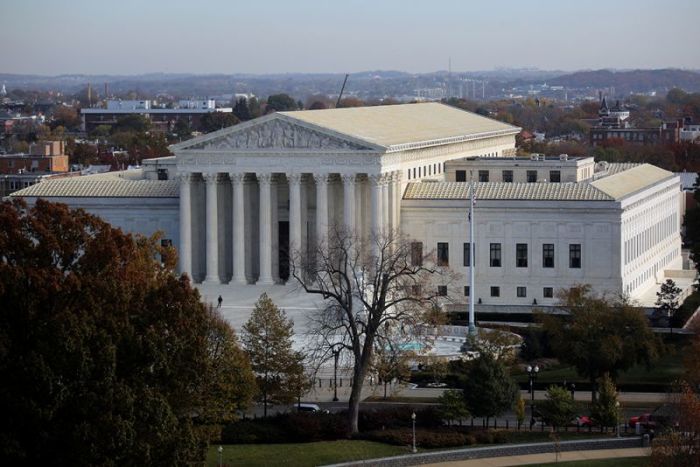Facts You Should Know About Trump's 4 Supreme Court Finalists

President Trump will announce his pick to fill Antonin Scalia's seat on the U.S. Supreme Court Tuesday evening, two days earlier than previously announced, amid speculations a fourth candidate has been re-added to his shortlist.
His potential choices, all notably conservative, were all appointed to serve on federal appellate courts by President George W. Bush and all appeared on the list of 21 potential nominees he presented during the 2016 presidential campaign.
In a March 2016 opinion piece on The Christian Post shortly after Justice Scalia's death, CP Executive Editor Richard Land argued that Scalia's dissent in Obergefell v. Hodges, which legalized same-sex marriage nationwide, effectively offered a primer as to how his successor should be chosen. Although ideological and gender diversity were present among the nine justices, the current bench is comprised of Ivy League educated people, most of whom hail from the greater New York area and California. Prior to Scalia's death, six justices were Catholic, and three are Jews. Such an elitist makeup, Land writes of Scalia argument, is "dangerously out of step with the broader culture of the country they seek to serve."
Land further offered that the next Justice on the court ought to be a mainline Protestant or evangelical, from the Midwest or South, and preferably not from an Ivy League School.
Listed below are the 4 potential nominees, their roots, religious and educational backgrounds, on the President Trump's shortlist.
Justice William H. Pryor, Jr. of Alabama, Eleventh Circuit Court of Appeals
Pryor, 54, is a devout Roman Catholic and is one of the candidates whose educational pedigree is not elite.
A Mobile, Alabama native and graduate of Northeast Louisiana University and Tulane Law School, Justice Pryor is sometimes likened to President Trump's nominee for Attorney General, Alabama Sen. Jeff Sessions. Pryor succeeded Sessions as Alabama Attorney General after Sessions was elected to the U.S. Senate in 1996.
Held in high esteem among evangelicals and other social conservatives, he once called Roe v. Wade, which granted the right to legal abortion as constitutional, "the worst abomination of constitutional law in our history." Pryor has also received some pushback from conservatives for taking the lead as attorney general of Alabama in removing Alabama's chief justice Roy Moore for defying a federal court order to remove a monument of the Ten Commandments from the state courthouse.
Justice Neil M. Gorsuch of Colorado, Tenth Circuit Court of Appeals
The candidate with the most prestigious educational credentials is Colorado's Neil Gorsuch, 49.
According to Eagle Forum's Andy Schlafly and another anonymous source who heard second-hand, Gorsuch attends an Episcopal church in Boulder. The Christian Post reached out to several other people to confirm this, including his Tenth Circuit office, but it was not verified by press time.
Originally from Denver, the justice earned his bachelor's degree from Columbia University in New York City, his law degree from Harvard, and holds a doctorate in legal philosophy from Oxford where he studied as a Marshall scholar.
He is the author of the The Future of Assisted Suicide and Euthanasia, which explores the ethical and legal issues surrounding euthanasia, and argues strongly against its legalization.
As reported by NPR last week, Gorsuch is regarded as a "cerebral proponent of 'originalism,' the idea that the Constitution should be interpreted as the Founding Fathers would have more than 200 years ago, and of 'textualism,' the idea that statutes should be interpreted literally, without considering the legislative history and underlying purpose of the law."
Justice Thomas M. Hardiman of Pennsylvania, Third Circuit Court of Appeals
Born in Massachusetts but now resides in Pittsburgh, Hardiman, 51, received his education at Notre Dame and Georgetown Law School — the latter of which he paid for by driving a taxicab. He is a colleague of President Trump's sister, Maryanne Trump Barry, who, according to Politico Wednesday, "is high on" his candidacy.
Such sentiment alarmed some conservatives given Barry's reputation as a more liberal judge who supports abortion rights.
Concerns of that nature are unfounded, noted Ed Whelan, who wrote at National Review Friday that Barry testified strongly in favor of now Supreme Court Justice Samuel Alito at his confirmation hearing, who was also her colleague on the Third Circuit.
Barry supported Alito "notwithstanding their various disagreements over the years, including in a partial-birth abortion case. This shows, I think, that Barry, like many other judges, appreciates colleagues who are very smart and capable, even if they do not share her own judicial approach," Whelan said.
Justice Diane S. Sykes of Wisconsin, Seventh Circuit Court of Appeals
Though earlier reports indicated that the President had narrowed his list of choices down to the three men listed above, the Associated Press mentioned Sunday that President Trump was still considering judge Diane Sykes, 59, the eldest of the nominees, for the seat.
Sykes graduated with a bachelor of science degree in journalism from Northwestern University in 1980 and worked as a reporter for The Milwaukee Journal before entering Marquette University Law School. Like five of the other current justices, she is Roman Catholic.
Some speculate that the President wanted to choose a younger nominee so as to preserve to a conservative legacy of jurisprudence on the high court for longer time.
According to the Milwaukee Journal Sentinel Saturday, President Trump is planning to travel to Milwaukee on Thursday, the same day he had originally planned to announce his Supreme Court nomination.





























